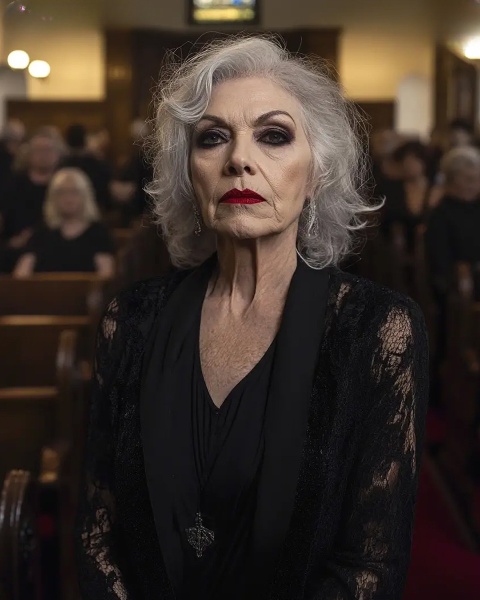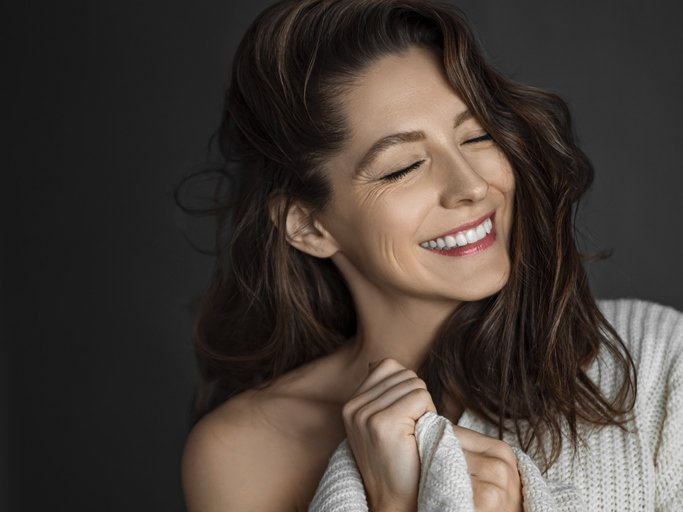This past Sunday, a situation at church left me conflicted. My friend arrived with bold makeup—dark eyeshadow, thick eyeliner, and bright red lipstick. It felt out of place in the solemn atmosphere of the sanctuary. After the service, I mentioned she might consider a more subdued look for church. She responded calmly, saying, “I believe everyone has the right to express themselves, even here.” Her words made me pause and reflect: Did I overstep? Was I wrong to say anything?
This experience prompted deeper questions. Is there a “right” way to present oneself in church? Should makeup be part of our worship attire, and what does Scripture say about modesty and self-expression?
Balancing Beauty and Modesty: What the Bible Teaches

The Bible, while not explicit about makeup, emphasizes modesty, humility, and a focus on inner beauty. In 1 Timothy 2:9–10, Paul writes, “I want women to dress modestly, with decency and propriety… not with elaborate hairstyles or gold or pearls or expensive clothes.” The focus is on inner qualities rather than outward adornment.
Similarly, 1 Peter 3:3–4 encourages women to cultivate “the unfading beauty of a gentle and quiet spirit, which is of great worth in God’s sight.” These verses suggest that our external appearance, whether through fashion or makeup, should reflect a heart focused on God, not the admiration of others. It’s not about prohibition but about perspective—centering our beauty on humility and a genuine heart for worship.
Modern Makeup: A Tool for Confidence or an Idol of Self-Worth?
For many women, makeup is more than just a beauty product; it’s a way to enhance confidence. But there’s a difference between using makeup to enhance natural beauty and relying on it to feel complete. Makeup can be as innocent as wanting to look polished or as complex as masking insecurities. The question is, are we using it to honor God or as a crutch?
Using makeup responsibly and within context can align with honoring oneself as God’s creation. However, when it becomes an obsession or a measure of worth, it risks becoming an idol.
Church as a Space for Reflection, Not a Fashion Show
While church dress codes have become more casual over time, the underlying principle remains respect for the sacred space. 1 Timothy 2:9 suggests dressing with propriety and humility in worship, which extends to makeup choices. A church service is about connecting with God and community, not drawing attention to oneself. Overly flashy makeup, much like extravagant outfits, can unintentionally distract from worship.
The goal is to strike a balance that reflects personal style while respecting the church environment. Subtle, natural makeup can allow us to express ourselves without taking away from the reverence of worship.
Is There Ever a Right Time to Address Someone’s Makeup Choices?
My friend’s response was eye-opening. She was right that self-expression is personal, and while intentions matter, so does timing. Unless someone’s appearance is causing a genuine disruption or discomfort within the community, it may not be necessary to bring it up. Judgment, even when well-intentioned, can alienate rather than support.
However, if approached with kindness and context, such conversations can be constructive. Rather than imposing our views, we should seek to understand the other person’s perspective. Church communities are diverse, and respect for individuality often fosters a welcoming environment.
Embracing Inner Beauty Over Outward Appearance

Our culture places a high value on appearance, but the Bible reminds us that God values the heart above all. As Proverbs 31:30 says, “Charm is deceptive, and beauty is fleeting; but a woman who fears the Lord is to be praised.” This verse beautifully conveys the transient nature of physical beauty and the eternal value of a heart aligned with God.
For those who find self-worth through makeup, it may be worth reflecting on whether that outer layer is a shield or an enhancement. God’s view of beauty is focused on character, kindness, and love—qualities that radiate beyond physical appearance. Remembering this can help us maintain a healthy perspective on beauty standards.
A Practical Guide to Honoring God Through Our Appearance
If makeup is part of your routine, consider how it aligns with your faith. Here are a few tips to ensure your look is respectful and modest:
- Keep it Simple: A touch of foundation, natural eyeshadow, and soft lipstick can enhance features without overshadowing your personality or drawing too much attention.
- Reflect on Your Intention: Are you wearing makeup to feel confident, or do you feel dependent on it? If it’s the latter, explore ways to cultivate inner confidence without cosmetics.
- Consider the Context: Whether it’s a church service or any other formal setting, think about whether your appearance is suitable for the occasion.
- Focus on Inner Beauty: Spend time nurturing qualities like kindness, patience, and love, as these are what God values most.
Final Thoughts: Celebrating Individual Expression with Modesty in Mind

In a world that often equates worth with appearance, it’s easy to fall into the trap of superficial beauty. Yet, as believers, we are called to see beyond the surface and embrace the lasting beauty of a gentle and humble spirit. The Bible doesn’t condemn makeup; rather, it encourages us to cultivate inner virtues that reflect God’s love and grace.
So, was I wrong to comment on my friend’s makeup? Perhaps my approach could have been gentler, with more understanding of her perspective. It’s a reminder that while sharing our opinions can be helpful, doing so with grace and respect is essential.
In the end, each person has the freedom to express themselves uniquely, and as long as our intentions align with humility and respect, there’s room for personal expression—even in sacred spaces.


